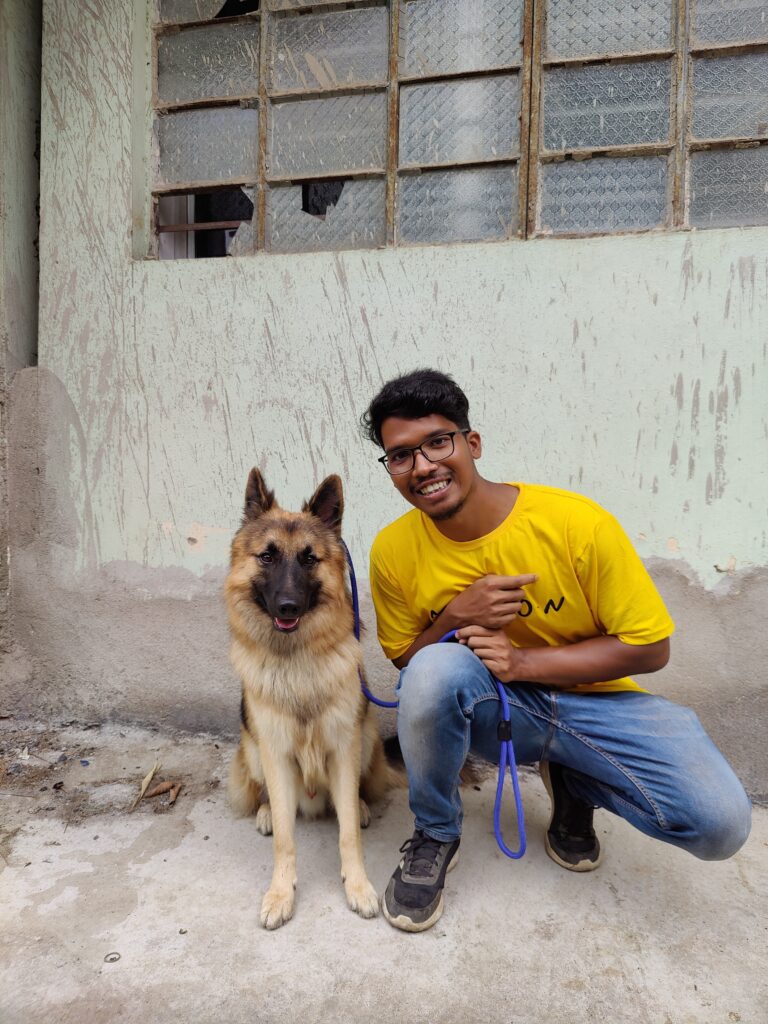In Behavior modification dog training we fix adult dogs with major behavior issues like
Leash pulling,
Anxiety issues
Confidence building
jumping on guests
digging
chewing furniture
aggression issues etc.
In this, we assess the dog and figure out its triggers as to why is it reacting in a certain way. We tackle each and every issue one by one to make the dog easy to live with. At the end of the day, we want your dog to be comfortable around people and animals on walks and in the home as well.
There are a few steps involved in modifying a dog’s behavior:
- Identify the problem behavior: The first step in modifying a dog’s behavior is to identify the specific behavior that needs to be changed. Common problem behaviors include aggression, barking, jumping, digging, and chewing.
- Understand the cause of the behavior: Once the problem behavior has been identified, it’s important to understand the underlying cause. For example, a dog that barks excessively may be doing so out of boredom, fear, or anxiety.
- Develop a training plan: Once you understand the cause of the behavior, you can develop a training plan to modify it. This may involve teaching new behaviors, reinforcing positive behaviors, or correcting problem behaviors.
- Implement the plan: Once you have a training plan in place, it’s important to consistently implement it. setting aside time each day for training, and reinforcing positive behaviors consistently.
- Monitor progress: Finally, it’s important to monitor your dog’s progress and adjust the training plan as needed. This may involve tweaking training techniques or changing the environment to better suit your dog’s needs.
Some tips for successful dog behavior modification include:
- Using positive reinforcement techniques, such as treats and praise, to encourage good behavior
- Being consistent with training and reinforcing positive behaviors
- Avoiding punishment or physical corrections, which can be counterproductive and may worsen behavior problems
- Being patient and persistent, as behavior modification can take time and effort.

